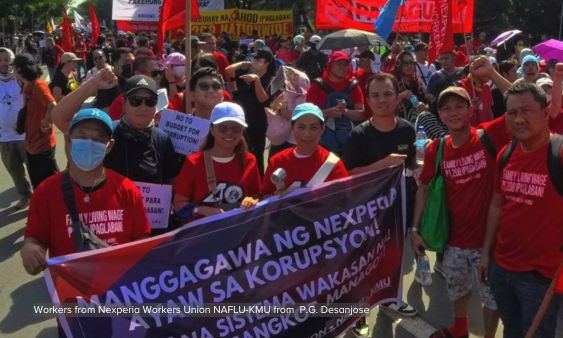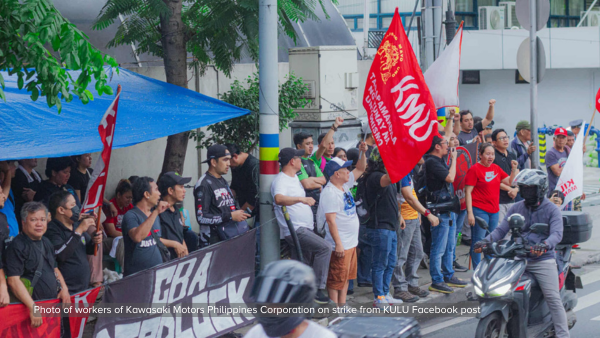On 18 July 2016, the Centre for Reflection and Action on Labour Issues (CEREAL-Guadalajara) has released its seventh annual report on working conditions in the Mexican electronics industry.
‘Beyond voluntary codes and audits: a challenge for the Electronics Industry’ includes a critique of the social auditing of the Electronic Industry Citizenship Coalition’s (EICC’s) Code of Conduct, particularly its failure to detect and remediate widespread violations of freedom of association in Mexico. It also profiles a report on electronics workers’ struggle to be represented by independent unions in Ciudad Juarez, the rise of precarious forms of employment in the sector, and its assessment labour standards compliance in electronics factories in the Guadalajara area. You can download the report here.
Flawed audits
The Code of Conduct of the Electronic Industry is a voluntary initiative, adopted worldwide by more than 100 companies. For the last 12 years the Code has been an upgrading set of standards on social, environmental and ethical issues in the electronic supply chain. To verify the implementation of the Code, companies run audits to measure their level of compliance. However, the results of these audits seldom seem to match what happens in the field. CEREAL’s Report includes an analysis of some of the results of these audits, an interview with an actual auditor of the Code and a survey with workers. Among the cases mention in the Report is the one of IBM. This company reported recently that only 7% of non-compliant results with the IBM/EICC Code found by audits were related to the right of freedom of association. In contrast, CEREAL collected a random sample of 120 interviews at IBM and 100% of the workers who participated said that they did not know the name of the labour union who signed off the collective contract with the company. None of them said to have attended any meeting with the labour union, and neither to be aware of the agreements between the union and the company.
Lack of freedom of association
For the first time since the electronics companies arrived to Mexico, more than twenty years ago, workers of three different companies of this sector took the streets to demand better working conditions almost simultaneously in Ciudad Juarez. Workers asked for legal recognition of their unions to be able to engage in collective bargaining with their companies. In response, workers had to face the opposition of labour authorities and the reprisals coming from the companies. The cases and analysis included in this Report reveal the partiality and sometimes connivance of the government to preclude the workers from exercising their right to freedom of association; these cases and analysis also show the unwillingness of companies to engage in authentic processes of collective bargaining with workers, which goes against Mexican law, EICC’s Code of Conduct and ILO’s core labour standards. None of the approximately 800 electronics companies based in Mexico has an active union and more than 90% of them has signed what is called an employer protection contract with an inactive leader who does not really represent the workers. The Report includes a profile of one of these leaders.
Low wages
According with CEREAL’s survey, the average daily wage of a production worker in the electronic industry in Mexico is 116 pesos (less than 7 USD). It has barely increase for the last four years, it has lost 12% of its purchasing power during that period. This income is not enough to cover an average (4 members) household basic needs; in fact, it only covers 60% of the food basket and 35% of the total basic basket. To meet the minimum income to cover their basic needs, workers of this industry have to take another job in another factory, to clean houses or to do someone else’s laundry. This is the main reason why workers quite their job in this industry in Mexico.
Work-related accidents and hazards
The cases included in this Report show the difficult working conditions faced by the drivers of the busses which transport personnel for electronic companies. Long working hours and lack of maintenance of the buses had caused several accidents last year leaving dozens of workers injured. Other hazardous conditions persist, like handling toxic substances, lifting heavy things and repetitive movements. Although some of the companies deny the existence of this conditions, others have implemented changes as to reduce the probability of accidents and illness among their workers.
Centro de Reflexión y Acción Laboral (CEREAL) Guadalajara
For more information, please contact:
Jorge Barajas
+52(33)36148095
[email protected]









